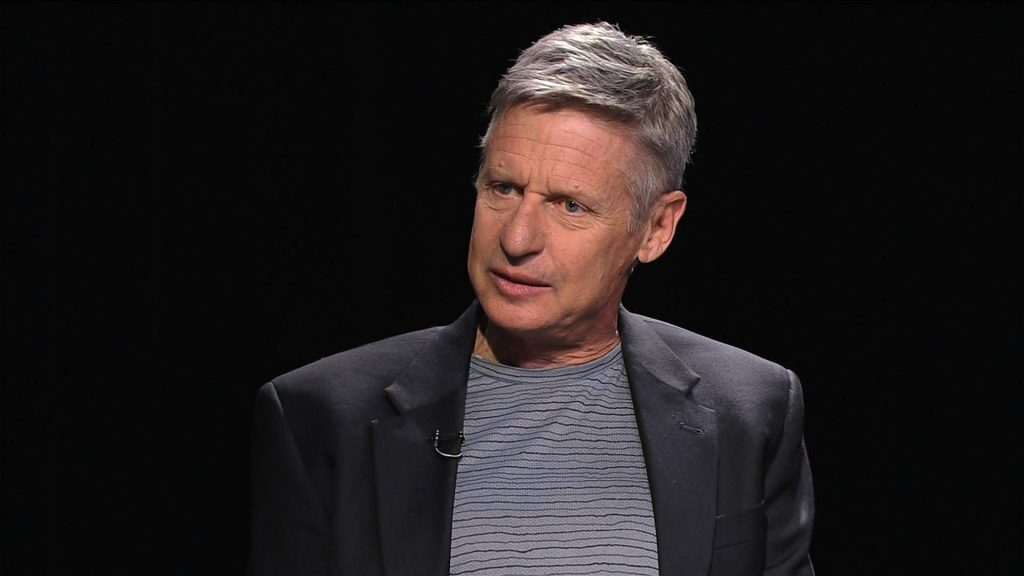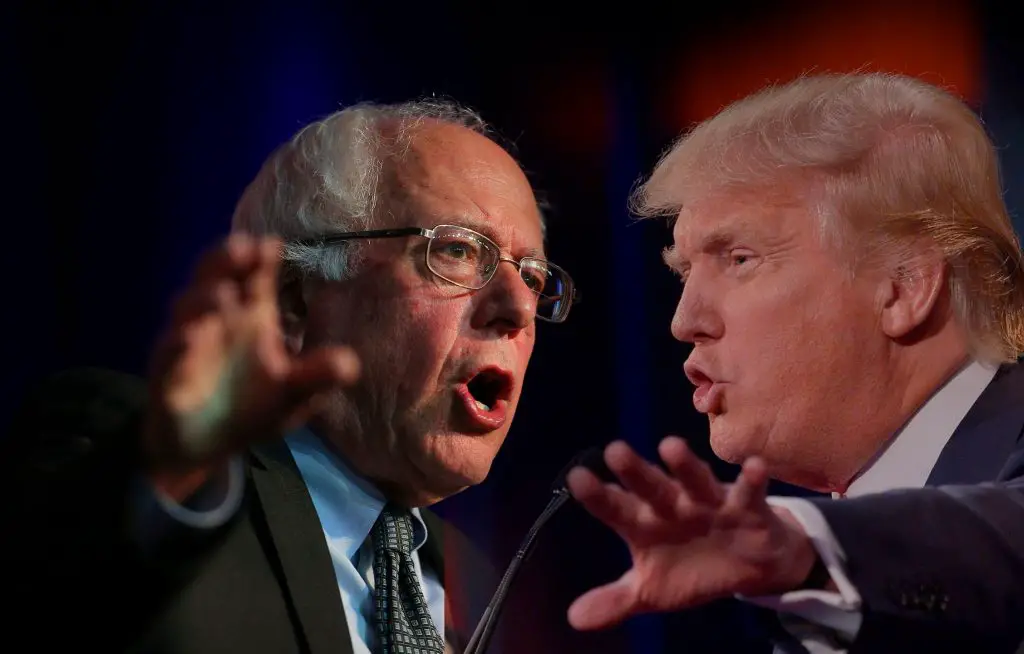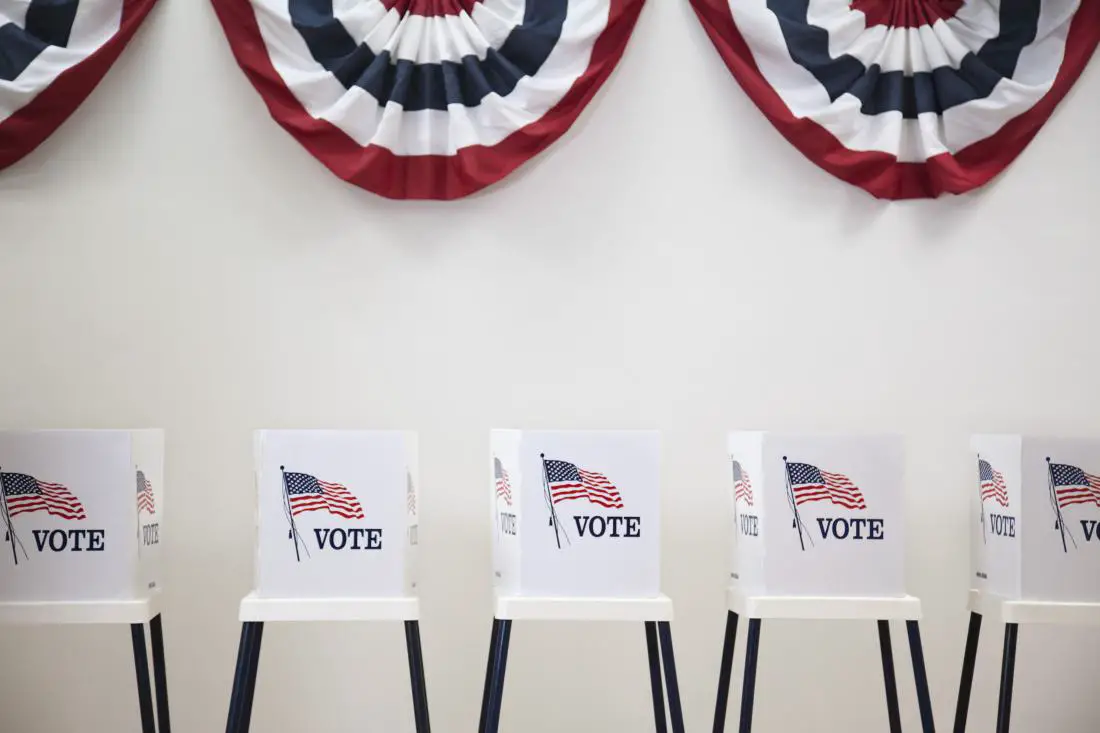The Distrust Dismantling the System
Until social issues at home are worked out, the body politic will continue nominating fringe candidates instead of effective ones.
By Tim Philbin, College of the Holy Cross
With the conventions in the rear view mirror and Election Day growing ever nearer, Donald Trump and Hillary Clinton are embarking on the final sprint of a long and arduous campaign.
TV ads are playing nationwide, the candidates are holding rallies left and right and a vigorous debate grows ever more intense over which bitter pill to swallow: A racist, egocentric proto-fascist or a conniving, borderline corrupt serial liar?
It seems that almost no one actually likes one or the other of these candidates; polling data reveals that Trump has an favorability rating of 32 percent and Hillary has a favorability rating of 39 percent.
 Perhaps this is why third party candidates are enjoying more success in the polls than they normally do. According to the Pew Research Center, in a four way race Gary Johnson, the nominee of the Libertarian Party, would receive 10 percent of the vote, an unusually elevated number for a minor party’s nominee.
Perhaps this is why third party candidates are enjoying more success in the polls than they normally do. According to the Pew Research Center, in a four way race Gary Johnson, the nominee of the Libertarian Party, would receive 10 percent of the vote, an unusually elevated number for a minor party’s nominee.
Furthermore, among voters under 30, Donald Trump actually lags behind Gary Johnson and Green Party nominee Jill Stein. So the question emerges, how did American voters end up in such a predicament?
I believe the answer lies in the amount of internal discord from which each of the candidates emerged. Each party underwent a bitter struggle determining its respective nominee, and to a certain degree that struggle is still unresolved, leading to the insanity that voters see playing out before them.
Take the Republicans, for example. The pundits said that for the GOP, this election was going to be about redefining the Republican party. It would have to become a party that could appeal to a wider population than just rich white people. It would have to adjust its message to appeal to racial minorities, people of lower income and immigrants.
Well, the pundits were right about one thing. The party did redefine itself, just not in the way they thought it would.
In fact, it did the exact opposite of what the “experts” predicted. Instead of inviting new demographics into the party, it shunned them with vigor. Instead of conciliation and understanding, it chose anger and vitriol. Instead of anyone else in the field, it chose Donald Trump.
Donald Trump is an enigma deserving of his own article altogether, but put simply, he feeds parasitically off fear. America is changing. It is becoming part of an increasingly globalized world in which things like NATO and free trade agreements are becoming more and more important. Immigration from Latin American countries is increasing such that by 2042, the United States will no longer be a white majority nation. Certain demographics in this country, namely white, uneducated, working class men, have become frustrated with this changing world to the point that they are willing to vote for an egotistical spray-tanned loudmouth who promises to fix all their problems because if he is elected president “We will have so much winning…that you may get bored with winning.”
And this is the man that the Republicans have nominated for President.
The party that once nominated Abraham Lincoln has descended into petty fascistic fearmongering.
Frankly, the only word that comes to mind to describe the Republican party of Donald Trump is “pathetic.”
That is not to say that I have a lot of warm and fuzzy feelings for the Democrats. Of course, they did not nominate their version of Donald Trump, but that doesn’t mean he wasn’t there.
Though they may seem diametrically opposite, Bernie Sanders and Donald Trump have one very important thing in common: They both ride the wave of a populist groundswell. They command support that is not reasoned and measured, but rather impassioned and fanatical. Take this “USA Today” report about the protests on the floor of the DNC, during which Bernie supporters apparently harassed teenagers who supported Hillary.
This shouldn’t be so surprising. Sanders and Trump are angry about different things, but theirs is nonetheless fundamentally a politics of anger. Trump rails against immigrants and “Crooked Hillary”; Bernie rails against the 1 percent and Wall Street bankers. Trump says “build a wall”; Bernie says “break up the banks.” Though they would never say so, Trump and Bernie are not actually all that different.

Whether he meant to or not, Bernie Sanders revealed and then intensified an ever-growing rift in the Democratic Party. There are the Hillary Democrats and then there are the Bernie Democrats, and they are not going anywhere any time soon. As stated on Bernie Sanders’ own website, “Election days come and go. But political and social revolutions that attempt to transform our society never end…That’s what this campaign has been about over the past year. That’s what the political revolution is about and that’s why the political revolution must continue into the future.” Make no mistake, the effort to change the Democratic party the same way Donald Trump changed the Republican party has not ended, but rather just begun.
The movements for change within both the Democratic and Republican parties share the same essential characteristic: Frustration with the establishment. Each party has its own anti-establishment faction, each of which is growing both in numbers and in intensity.
The fact is that this didn’t fall out of the sky. This is the product of a system that is not working for most Americans. When congressmen are more concerned with appealing to their bases than passing good laws, when lawmakers allow the government to shut down just to make a point, when politicians are more concerned about their careers than their country, people become justifiably frustrated with the system, even to the point of feeling disenfranchised.
This is the critical point that America is at now. People feel like the system is beyond reform. They want outsiders, anti-establishment candidates who promise to change everything from the ground up.
Trust in government has been destroyed, and until such time as it is restored, the American political system will only become more fractured and dysfunctional. What America needs is not a brash, arrogant strongman, nor an angry, impassioned socialist. America needs a President who can bring the various factions together, someone who can see how things went wrong but can also work to redress the government’s shortcomings from within the system. Until such time as a candidate like this comes along, the plague of mistrust will persist. But my advice would be to brace for disappointment, because I don’t know when (if ever) such a President will be elected, but I do know one thing: It won’t be this November.

















